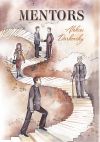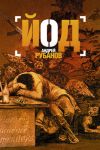
Автор книги: Радмила Шарифьянова
Жанр: Языкознание, Наука и Образование
Возрастные ограничения: 12+
сообщить о неприемлемом содержимом
Интервью на английском: Подготовка к 3 заданию ЕГЭ
Сдай устную часть на максимум!
Радмила Шарифьянова
© Радмила Шарифьянова, 2023
ISBN 978-5-0060-1284-4
Создано в интеллектуальной издательской системе Ridero
Предисловие
Дорогие читатели,
Эта книга представляет собой практическое пособие для всех, кто готовится к сдаче ЕГЭ по английскому языку и хочет успешно выполнить задание 3 устной части экзамена. В этом задании вы должны будете пройти интервью на заданную тему и ответить на 5 вопросов, используя свои знания языка и коммуникативные навыки.
Для подготовки к этому заданию я предлагаю вам ряд интервью на разные темы, которые могут возникнуть на экзамене, а также примерные ответы к ним. Я подготовила эти интервью на основе тем кодификатора ЕГЭ по английскому языку, чтобы помочь вам максимально точно представить себе, что вас ждет на экзамене.
Я уверена, что эта книга поможет вам отработать навыки общения на английском языке, повысить уверенность в себе и успешно сдать задание 3 устной части ЕГЭ по английскому языку. Желаю вам успехов в обучении и прохождении экзаменов!
С уважением,
Радмила Шарифьянова
Hobbies
Interviewer: Hello everybody! It’s Teenagers Round the World Channel. Our guest today is a teenager from Russia and we are going to discuss hobbies. We’d like to know our guest’s point of view on this issue. Please answer five questions. So, let’s get started.
Interviewer: What types of hobbies are you interested in? How did you discover these hobbies?
Student: _________________________
Interviewer: What is your favorite hobby and why? How has it impacted your life?
Student: _________________________
Interviewer: Can you describe how you pursue your hobbies? Do you have any specific goals or projects related to your hobbies?
Student: _________________________
Interviewer: Have you ever tried a new hobby and found it challenging? If so, how did you overcome the challenges?
Student: _________________________
Interviewer: How do you balance your hobbies with other responsibilities, such as schoolwork or family obligations? What advice would you give to someone who wants to make time for their hobbies?
Student: _________________________
Interviewer: Thank you very much for your interview.
Sample answer
Interviewer: What types of hobbies are you interested in? How did you discover these hobbies?
Student: I'm interested in various hobbies such as playing musical instruments, reading books, and doing sports. I discovered my interests in music when my parents introduced me to a piano teacher, and I developed my love for reading after a friend recommended a book to me. As for sports, I found that I enjoyed running and swimming after trying them out at school.
Interviewer: What is your favorite hobby and why? How has it impacted your life?
Student: My favorite hobby is playing the guitar because it allows me to express myself through music. It has helped me develop my creativity and has been a great stress reliever for me during difficult times.
Interviewer: Can you describe how you pursue your hobbies? Do you have any specific goals or projects related to your hobbies?
Student: I usually set aside time each week to practice my hobbies. For example, I try to practice playing the guitar for at least an hour every day. I also set specific goals for myself, such as learning a new song or improving my technique. Currently, I am working on composing my own music.
Interviewer: Have you ever tried a new hobby and found it challenging? If so, how did you overcome the challenges?
Student: Yes, I tried learning how to knit and found it very challenging. I overcame the difficulties by watching tutorial videos online and practicing consistently until I improved my skills.
Interviewer: How do you balance your hobbies with other responsibilities, such as schoolwork or family obligations? What advice would you give to someone who wants to make time for their hobbies?
Student: Balancing my hobbies with other responsibilities can be challenging, but I try to prioritize my schoolwork and family obligations first. I make sure to set aside specific times for my hobbies and stick to a schedule. My advice to someone who wants to make time for their hobbies would be to find a balance that works for them and try to make it a consistent part of their routine.
Hobbies that require creativity
Interviewer: Hello everybody! It’s Teenagers Round the World Channel. Our guest today is a teenager from Russia and we are going to discuss hobbies that require creativity. We’d like to know our guest’s point of view on this issue. Please answer five questions. So, let’s get started.
Interviewer: What types of hobbies do you consider to be creative? Why do you find them interesting?
Student: _________________________
Interviewer: Can you describe how you express your creativity through your hobbies? Do you experiment with different techniques or styles?
Student:_________________________
Interviewer: Do you think that creativity is an important skill to have? How has pursuing creative hobbies helped you develop this skill?
Student:_________________________
Interviewer: Have you ever faced any challenges or obstacles while pursuing creative hobbies? If so, how did you overcome them?
Student: _________________________
Interviewer: What advice would you give to someone who wants to pursue creative hobbies but doesn’t know where to start?
Student: _________________________
Interviewer: Thank you very much for your interview.
Sample answer
Interviewer: What types of hobbies do you consider to be creative? Why do you find them interesting?
Student: I consider hobbies such as drawing, painting, writing, photography, and filmmaking to be creative. I find them interesting because they allow me to express my thoughts, feelings, and imagination through various mediums.
Interviewer: Can you describe how you express your creativity through your hobbies? Do you experiment with different techniques or styles?
Student: When I draw or paint, I like to experiment with different techniques and styles to create unique pieces. With writing, I try to challenge myself by exploring new genres and perspectives. And when it comes to photography and filmmaking, I enjoy experimenting with different angles, lighting, and editing techniques to create visually appealing and engaging content.
Interviewer: Do you think that creativity is an important skill to have? How has pursuing creative hobbies helped you develop this skill?
Student: Yes, I believe creativity is an essential skill to have as it allows us to think outside the box and come up with innovative solutions to problems. Pursuing creative hobbies has helped me develop my creativity by allowing me to explore new ideas and experiment with different approaches to creating art.
Interviewer: Have you ever faced any challenges or obstacles while pursuing creative hobbies? If so, how did you overcome them?
Student: Yes, I have faced challenges such as creative block or not being able to execute my vision the way I wanted. To overcome these challenges, I take a break from my hobby and come back refreshed with new ideas. I also seek inspiration from other artists and try to learn new techniques to improve my skills.
Interviewer: What advice would you give to someone who wants to pursue creative hobbies but doesn’t know where to start?
Student: My advice would be to start by exploring different mediums and finding what interests them the most. They can then start by practicing basic techniques and experimenting with different styles to find their own unique approach. It’s also helpful to seek inspiration from other artists and join online communities where they can connect with like-minded individuals and get feedback on their work.
Hobbies that require physical activity
Interviewer: Hello everybody! It’s Teenagers Round the World Channel. Our guest today is a teenager from Russia and we are going to discuss hobbies that require physical activity. We’d like to know our guest’s point of view on this issue. Please answer five questions. So, let’s get started.
Interviewer: What types of hobbies do you consider to be physically active? Why do you find them interesting?
Student:_________________________
Interviewer: Can you describe how you stay active through your hobbies? Do you have any specific goals or challenges related to these hobbies?
Student: _________________________
Interviewer: Do you think that physical activity is an important part of a healthy lifestyle? How has pursuing physically active hobbies impacted your health?
Student: _________________________
Interviewer: Have you ever faced any difficulties or injuries while pursuing physically active hobbies? If so, how did you deal with those situations?
Student: _________________________
Interviewer: What advice would you give to someone who wants to pursue physically active hobbies but is unsure where to begin?
Student: _________________________
Interviewer: Thank you very much for your interview.
Sample answer
Interviewer: What types of hobbies do you consider to be physically active? Why do you find them interesting?
Student: I consider hobbies such as running, cycling, swimming, dancing, and martial arts to be physically active. I find them interesting because they offer a fun way to stay fit, improve my endurance, and challenge myself physically.
Interviewer: Can you describe how you stay active through your hobbies? Do you have any specific goals or challenges related to these hobbies?
Student: I stay active by setting aside time each week to practice my hobbies. For example, I try to go for a run or bike ride at least three times a week. I also set specific goals for myself, such as running a certain distance or improving my form in martial arts.
Interviewer: Do you think that physical activity is an important part of a healthy lifestyle? How has pursuing physically active hobbies impacted your health?
Student: Yes, I believe physical activity is crucial for maintaining a healthy lifestyle. Pursuing physically active hobbies has helped me improve my cardiovascular health, increase my strength and flexibility, and boost my overall mood and energy levels.
Interviewer: Have you ever faced any difficulties or injuries while pursuing physically active hobbies? If so, how did you deal with those situations?
Student: Yes, I have faced difficulties such as muscle soreness or minor injuries like sprains. To deal with those situations, I take breaks and allow my body to rest and recover. I also consult with coaches or medical professionals if needed to prevent further injury.
Interviewer: What advice would you give to someone who wants to pursue physically active hobbies but is unsure where to begin?
Student: My advice would be to start slowly and gradually build up endurance and strength. It’s also helpful to seek guidance from a coach or trainer to ensure proper form and technique. Finding a supportive community or workout partner can also be motivating and make the experience more enjoyable.
Hobbies that involve working with others
Interviewer: Hello everybody! It’s Teenagers Round the World Channel. Our guest today is a teenager from Russia and we are going to discuss hobbies that involve working with others. We’d like to know our guest’s point of view on this issue. Please answer five questions. So, let’s get started.
Interviewer: What types of hobbies do you enjoy that involve working with others? Why do you find them interesting?
Student: _________________________
Interviewer: Can you describe how you communicate and collaborate with others while pursuing these hobbies? Do you have any specific goals or projects related to these hobbies?
Student: _________________________
Interviewer: Do you think that teamwork and collaboration are important skills to have? How has pursuing hobbies that involve working with others helped you develop these skills?
Student: _________________________
Interviewer: Have you ever faced any challenges or conflicts while working with others on hobbies? If so, how did you resolve those situations?
Student: _________________________
Interviewer: What advice would you give to someone who wants to pursue hobbies that involve working with others but is unsure how to get started?
Student: _________________________
Interviewer: Thank you very much for your interview.
Sample answer
Interviewer: What types of hobbies do you enjoy that involve working with others? Why do you find them interesting?
Student: I enjoy hobbies such as team sports, volunteering, and group projects. I find them interesting because they allow me to collaborate with others, learn from their perspectives, and achieve a common goal together.
Interviewer: Can you describe how you communicate and collaborate with others while pursuing these hobbies? Do you have any specific goals or projects related to these hobbies?
Student: When working with others, I try to actively listen to everyone’s ideas and contributions, and then offer my own suggestions in a respectful manner. For team sports, we work together to strategize and execute plays. In group projects, we divide tasks and regularly check in with each other on progress. Specific goals could include winning a game, completing a project on time, or raising awareness for a cause through volunteering.
Interviewer: Do you think that teamwork and collaboration are important skills to have? How has pursuing hobbies that involve working with others helped you develop these skills?
Student: Yes, I believe teamwork and collaboration are essential skills to have as they help us learn from others, build trust, and achieve more than we could on our own. Pursuing hobbies that involve working with others has helped me develop these skills by teaching me how to communicate effectively, resolve conflicts, and appreciate diverse perspectives.
Interviewer: Have you ever faced any challenges or conflicts while working with others on hobbies? If so, how did you resolve those situations?
Student: Yes, I have faced challenges such as disagreements over strategies or conflicting schedules. To resolve those situations, I try to find common ground and compromise when possible. If needed, I seek the input of a coach or mentor to help mediate conflicts.
Interviewer: What advice would you give to someone who wants to pursue hobbies that involve working with others but is unsure how to get started?
Student: My advice would be to find a community or organization that shares their interests and values, and then reach out to get involved in group activities or projects. Participating in team-building exercises or icebreakers can also be helpful for establishing connections and building trust with others.
Benefits of having a hobby
Interviewer: Hello everybody! It’s Teenagers Round the World Channel. Our guest today is a teenager from Russia and we are going to discuss the benefits of having a hobby. We’d like to know our guest’s point of view on this issue. Please answer five questions. So, let’s get started.
Interviewer: What hobbies do you have and why did you choose them?
Student: _________________________
Interviewer: How have your hobbies helped you in your personal life? Have they improved your mental health or given you an outlet for stress?
Student: _________________________
Interviewer: How have your hobbies helped you in your academic life? Do you find that pursuing hobbies helps you stay focused or motivated?
Student: _________________________
Interviewer: Do you think that having a hobby is important for teenagers? Why or why not?
Student: _________________________
Interviewer: What advice would you give to someone who hasn’t found their passion yet and is looking for a hobby to pursue?
Student: _________________________
Interviewer: Thank you very much for your interview.
Sample answer
Interviewer: What hobbies do you have and why did you choose them?
Student: I enjoy playing the guitar, reading books, and doing outdoor activities like hiking and camping. I chose these hobbies because they allow me to relax, learn new skills, and explore the natural world.
Interviewer: How have your hobbies helped you in your personal life? Have they improved your mental health or given you an outlet for stress?
Student: Yes, my hobbies have been a great source of stress relief and have improved my mental health by allowing me to take a break from daily pressures and focus on something enjoyable and meaningful. Playing guitar and being out in nature have especially been helpful for grounding myself and finding calmness.
Interviewer: How have your hobbies helped you in your academic life? Do you find that pursuing hobbies helps you stay focused or motivated?
Student: Pursuing hobbies has helped me stay motivated and focused in my academic life by allowing me to take breaks and recharge my energy levels, leading to better productivity and concentration. Also, sometimes the skills learned through hobbies can translate into academic success in other areas such as problem solving, creativity and critical thinking.
Interviewer: Do you think that having a hobby is important for teenagers? Why or why not?
Student: Yes, I believe having a hobby is essential for teenagers because it allows us to develop important life skills, discover our passions, and improve our mental health. Hobbies can also provide a sense of purpose and fulfillment outside of academic or social pressures.
Interviewer: What advice would you give to someone who hasn’t found their passion yet and is looking for a hobby to pursue?
Student: My advice would be to keep an open mind and try different things until something clicks. It’s important to be patient with yourself and not feel pressure to find a hobby right away. Trying new things can help you learn about yourself and what you enjoy. Also, joining clubs or groups related to interests can be a great way to meet like-minded people and discover new hobbies.
Hobbies that can lead to future careers
Interviewer: Hello everybody! It’s Teenagers Round the World Channel. Our guest today is a teenager from Russia and we are going to discuss hobbies that can lead to future careers. We’d like to know our guest’s point of view on this issue. Please answer five questions. So, let’s get started.
Interviewer: Can you think of any hobbies that could be turned into future careers? Why do these hobbies have potential for long-term success?
Student: _________________________
Interviewer: Do you personally have any hobbies that you think could lead to a career in the future? What steps would you need to take to make this happen?
Student: _________________________
Interviewer: Do you think that pursuing a hobby that could lead to a career is important? Why or why not?
Student: _________________________
Interviewer: Have you ever spoken with a professional in a field related to one of your hobbies? If so, what did you learn from that conversation?
Student: _________________________
Interviewer: What advice would you give to someone who wants to explore the potential career opportunities related to their hobbies?
Student: _________________________
Interviewer: Thank you very much for your interview.
Sample answer
Interviewer: Can you think of any hobbies that could be turned into future careers? Why do these hobbies have potential for long-term success?
Student: Hobbies such as writing, graphic design, photography, and programming can potentially lead to future careers. These hobbies have potential for long-term success because they offer a skillset that is in demand across various industries, and allow individuals to build a portfolio of work that showcases their abilities.
Interviewer: Do you personally have any hobbies that you think could lead to a career in the future? What steps would you need to take to make this happen?
Student: Yes, I enjoy coding and graphic design, which I believe could lead to a career in web or software development. To make this happen, I would need to further develop my skills through coursework, internships or by working on freelance projects to build a strong portfolio.
Interviewer: Do you think that pursuing a hobby that could lead to a career is important? Why or why not?
Student: Pursuing a hobby that could lead to a career can be important because it allows individuals to explore their passions, hone their skills, and potentially turn something they love into a lucrative career. However, it’s also important to pursue hobbies simply for personal enjoyment and not just to achieve a future career goal.
Interviewer: Have you ever spoken with a professional in a field related to one of your hobbies? If so, what did you learn from that conversation?
Student: Yes, I spoke with a professional graphic designer about his career path and the skills required for success in the field. From that conversation, I learned about the importance of networking, building a strong portfolio, and staying up-to-date on industry trends.
Interviewer: What advice would you give to someone who wants to explore the potential career opportunities related to their hobbies?
Student: My advice would be to take advantage of networking opportunities, reach out to professionals in the field, and seek out internships or freelance projects to gain experience and build a portfolio. It’s also helpful to research job prospects and salary expectations so they can make informed decisions about pursuing a career related to their hobby.









































